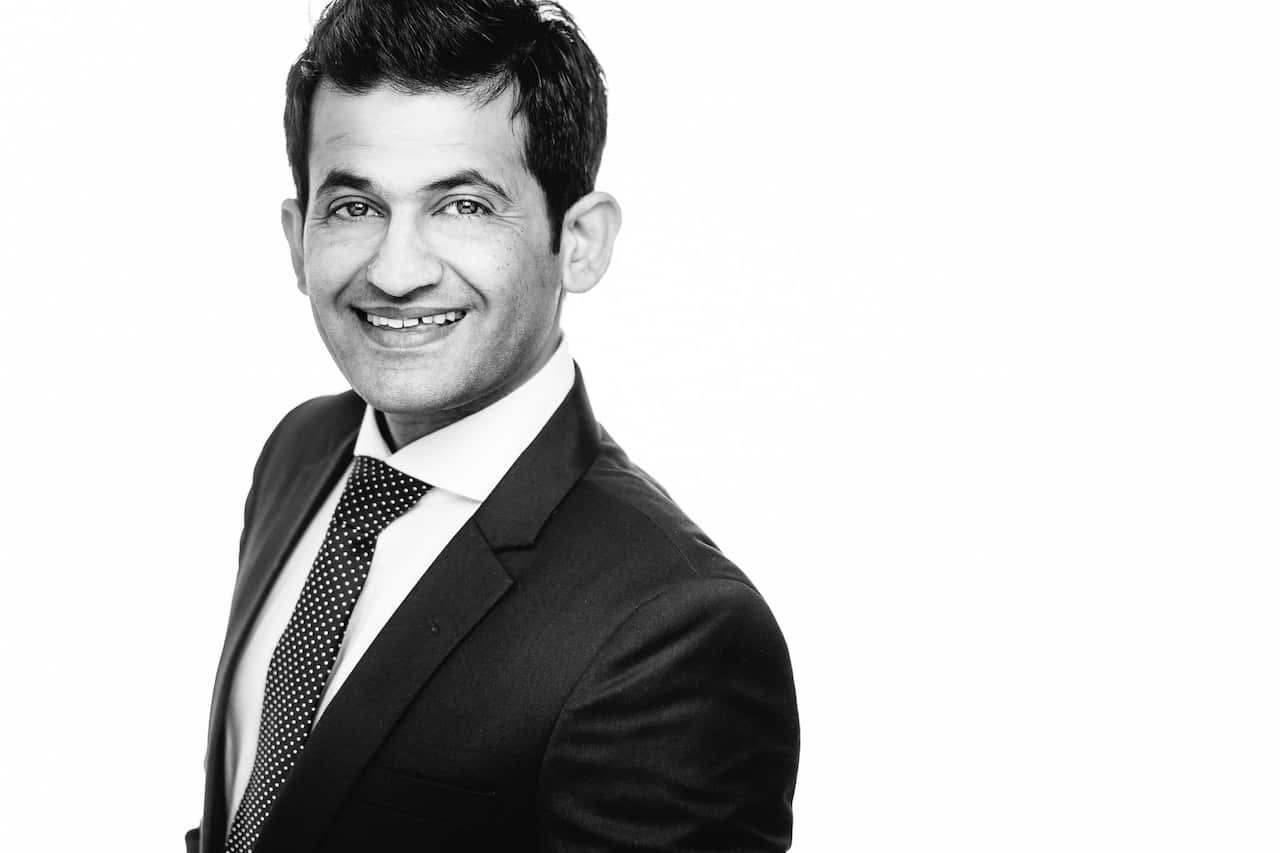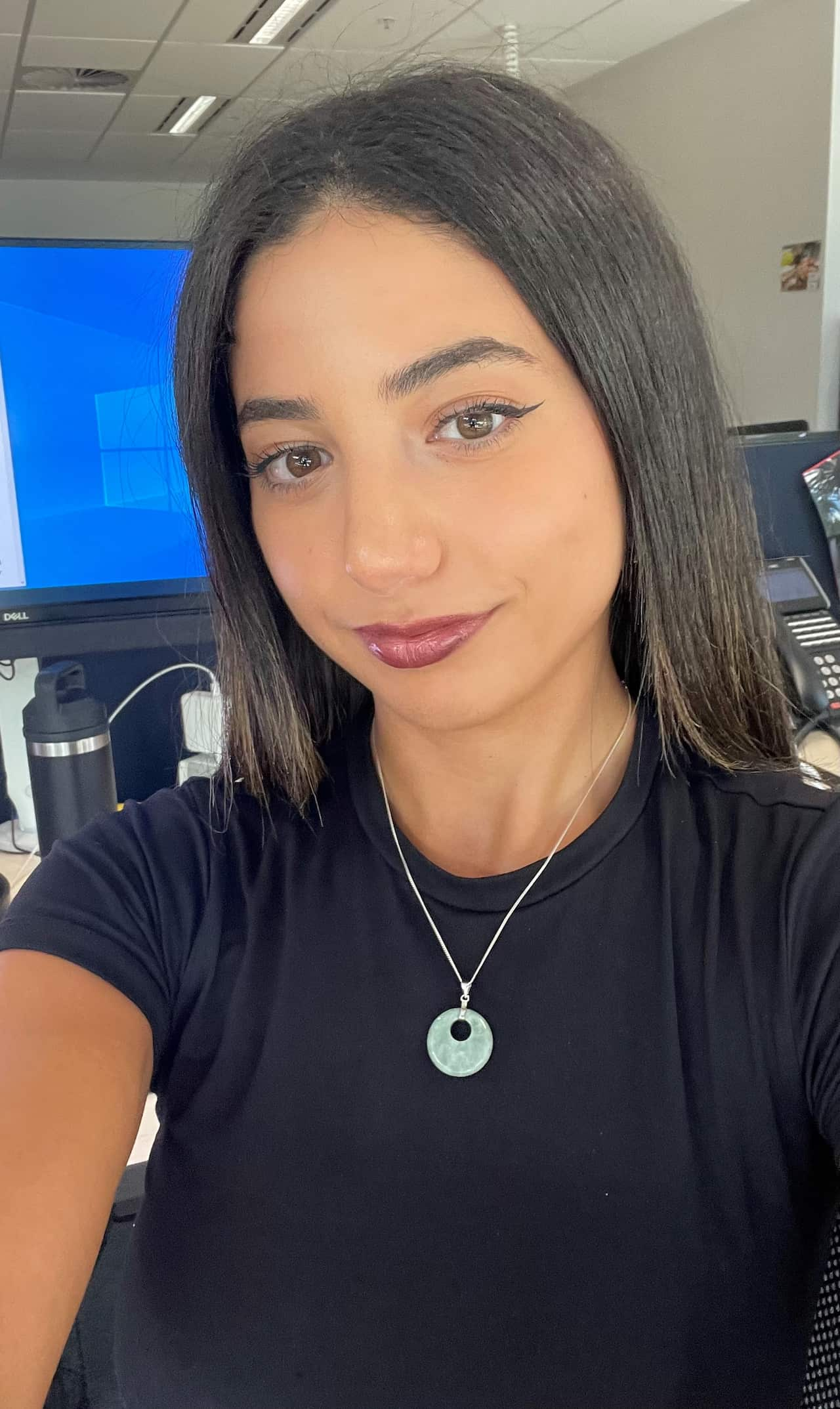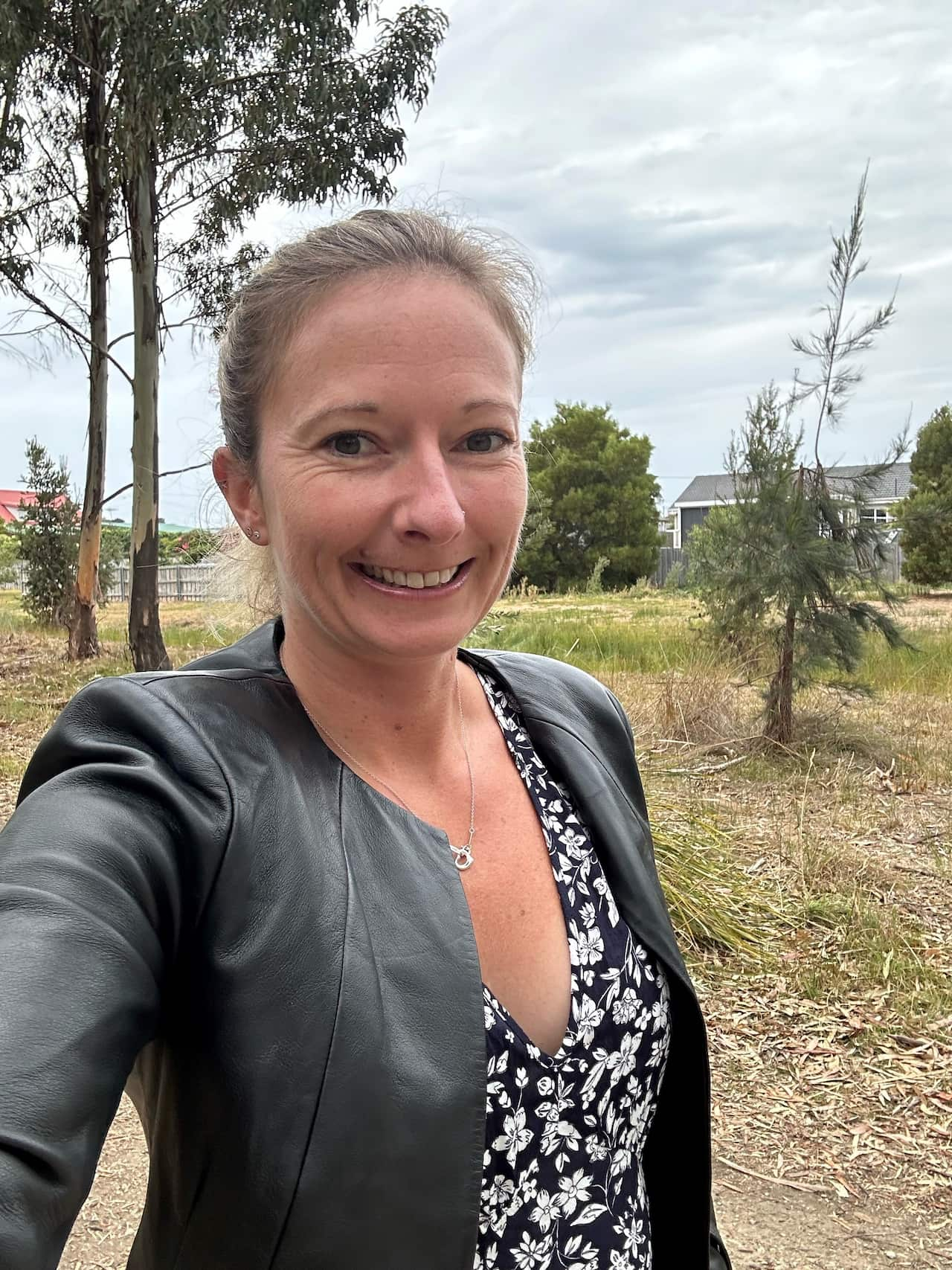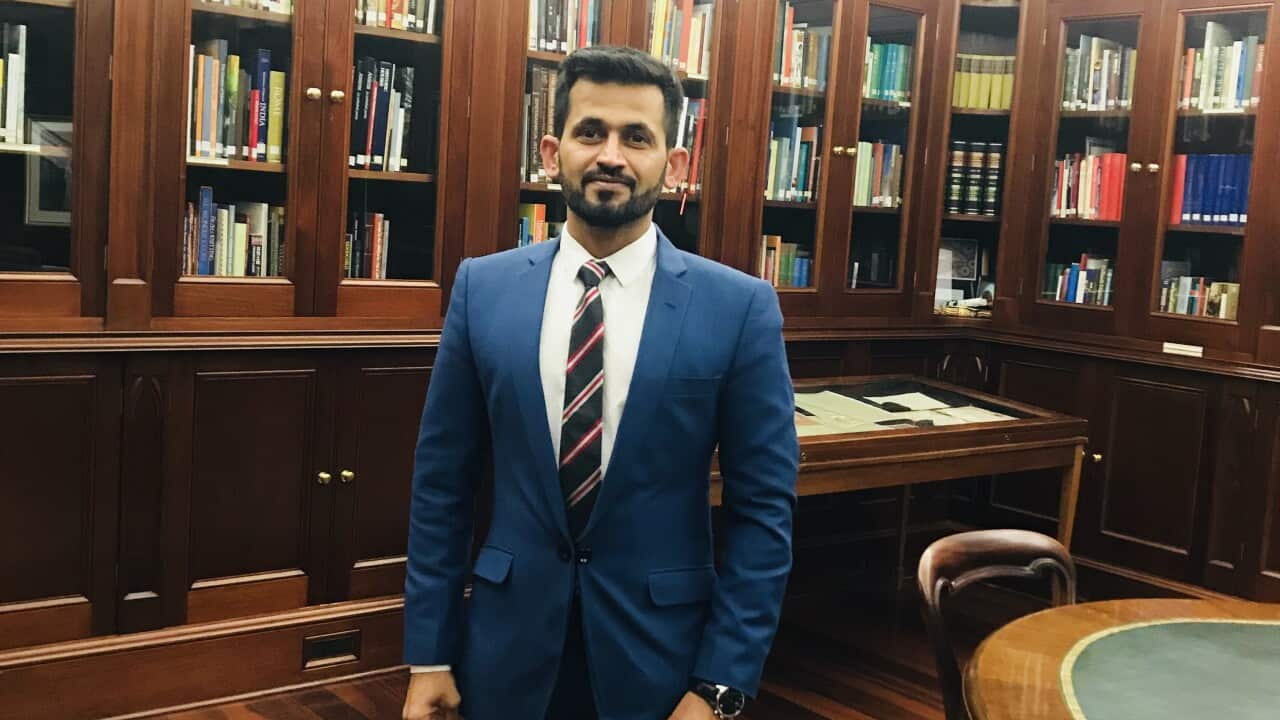Watch Insight‘s episode Diversity Dilemma — exploring if the push for diversity is broadening our horizons or stifling us — on SBS on Tuesday 21 May at 8.30pm or on
In 2009 Faheem left behind his career as an accountant at one of Pakistan’s largest banks to complete his master’s degree at the University of South Australia, a level of qualification he already held in his home nation of Pakistan.
“You put a lot of hard work … a lot of assignments, a lot of lectures in English,” Faheem told Insight.
After he graduated, it took him three years to find a steady job.
He applied to hundreds of accounting jobs but never received a follow-up to say he had advanced in the recruitment process, which he found odd given his professional experience.
He tried adjusting his resume and even paid people to help him.
“I was very motivated, spending three to four hours on one job application. I kept applying but no response,” Faheem said.
Faheem Shams describes the process of having to change his name as “losing his identity” in order to get ahead. Source: SBS
Eventually, he started to suspect it wasn’t his education or experience that was the reason for his continual rejection.
“Someone suggested, why don’t you try just change [your] name?” Faheem said.
So he changed it to something more Anglo-Celtic sounding. He almost immediately started getting responses from recruiters.
“As soon as I went by Samuel I start getting calls, some initial interviews, and face-to-face interviews,” Faheem said.
He found it very disheartening that people wouldn’t give him the opportunities he hoped for.
“It was a sense of losing your identity, just to get some opportunities, which shouldn’t be based on the name or colour, or the race. It should be based on the skills,” Faheem said.
Diversity is more than race
Abbir Dib’s parents are working-class Lebanese migrants.
She says the playing field isn’t always level, especially in her chosen field, journalism, and that’s made her a hard worker.
“I just felt like everything in life has to be earned with blood, sweat, and tears,” Abbir told Insight.
In the third year of her journalism degree, she applied for a scholarship through Media Diversity Australia.
Abbir Dib got her start in media after doing a placement program through a media diversity initiative. Source: SBS
She was the successful applicant, but instead of being proud of her achievement, she approached her internship with apprehension.
“One of my colleagues at the time found out what the scholarship was, and essentially had a go at me and told me that I’m stealing jobs from other people,” Abbir said.
She said she initially felt very embarrassed and ashamed of the way that she got in because she didn’t want anyone to feel like she hadn’t earned her spot.
“I initially didn’t want to mention it to anyone. I didn’t want anyone to have the opportunity to put me down. Or say that I got a free ride when I know that that wasn’t true,” Abbir said.
Despite the criticism, she believes opportunities like this are crucial for people who might not otherwise get a foot in the door.
“This just provides an even playing field, in my opinion.”
Diversity initiatives like Abbir’s scholarship and hiring quotas seek to enrich the workforce. But some believe they don’t accommodate the right groups.
“It’s important to have a diversity of thought, not just in politics. Socioeconomic status, race, gender, I think that’s very important,” Abbir said.
“There’s work to be done.”
The hierarchy of diversity
Andrew Timming has more than two decades of experience teaching human resources management.
He says that, in academia and beyond, factors of diversity are subject to an ‘unfair hierarchy’.
“DEI (diversity, equity, inclusion) initiatives tend to focus on gender, race, maybe a bit of disability in there as well,” Andrew told Insight.
“But, there’s an infinite number of sources of disadvantage,” he said.
He says some of the most disadvantaged groups in society are overlooked by these policies, such as those who suffered abuse as children, those who were raised in single-parent households and those who were impacted by mental health issues.
“All of these types of sources of disadvantage are almost completely absent in the DEI discussions,” Andrew said.
Verity Longley went through a ‘blind recruitment’ process. She says it was an empowering experience. Source: SBS
I went through a ‘blind recruitment’ process
Verity recently applied for a role within a STEM (science, technology, engineering and mathematics) organisation. It’s an industry that can be seen as male-dominated.
Before applying, she had concerns that her identity as a woman might be a factor.
“I had my own bias towards myself of going ‘I don’t think I’m ready for it’ and was holding myself back from it,” Verity said.
Afterwards, Verity learned the company used a recruitment process that eliminates identity bias.
Commonly referred to as ‘blind recruitment’, employers redact any socio-economic identifiers, such as age, gender and education, from applications.
“It focuses just on what your lived experience has been in the workplace,” she said.
Verity also learned she was the successful applicant.
“I’ve had a lot of experiences where people have sort of said to me that, well, you’re just the admin, you know, sort of assistant or you should be at home in the kitchen.
“So it actually gave me a lot of confidence to know that there was a group of people that actually had a look at me for my skills and said yes.”
And for more stories head to hosted by Kumi Taguchi. From sex and relationships to health, wealth, and grief Insightful offers deeper dives into the lives and first person stories of former guests from the acclaimed TV show, Insight.




Do you think changing one’s name to fit in with Western expectations is a fair requirement for job opportunities?
medicine in mexico pharmacies: mexican pharma – buying prescription drugs in mexico online
pharmacies in mexico that ship to usa
Semaglutide pharmacy price https://rybelsus.tech/# rybelsus price
buy rybelsus
ozempic generic: ozempic cost – ozempic generic